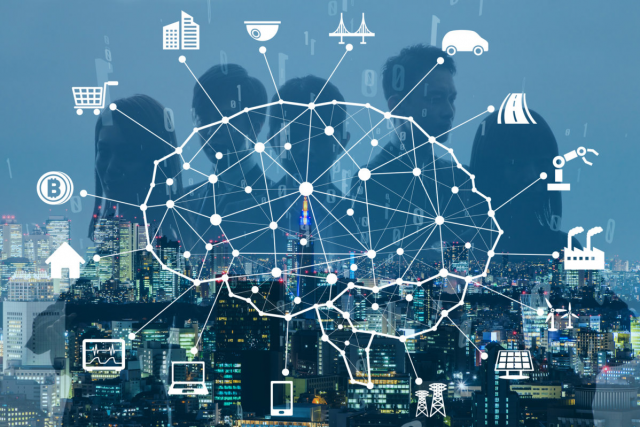Digital transformation of cooperative housing societies
Digital transformation means a fundamental change in the way an organisation or entity operates, by replacing old and traditional systems with digital technology. Digital transformation is occurring in national and state governments, corporates, institutions as well as in the societies and cultures across the globe.
On individual levels, residents are already immersed in digital adoption, e.g. using chatbots instead of human representatives, using digital wallets instead of cash and getting foods and groceries delivered to the doorstep instead of shopping at supermarkets.
What does digital transformation of residential societies mean?
The same concept which applies to a company or an organisational structure, also applies to gated communities. Day-to-day functioning, planning and management of the entity is no longer carried out by legacy systems.
For instance,
- cash payments become redundant as transactions are done over the mobile
- book-keeping and accounting activities are done over software with complete transparency instead of physical ledgers
- rentals and leasing is done on digital platforms, eliminating the need for brokers or middle men
- Meetings are conducted over video conferencing rather than physical meetings
- Digital paperwork is implemented instead of traditional paperwork,
- New technology is deployed to reduce a society’s carbon footprint as opposed to actions that cause harm to nature
The higher a residential society’s digital adoption level, the smoother is its functioning. Executives in digital transformation have experienced 40% Improved Operational Efficiency.
Digital transformation is in Society 4.0 stage (The information society) but is headed towards the society of the future or Society 5.0 – a new human centred Super Smart Society that merges between cyberspace and physical space in order to provide solutions to challenges through integration of AI, automation and big data.
How does a society implement digital transformation?
There are two equally important measures to incorporate:
1. Reorganize basic operation structure
Rethink and redesign the ABCs of how you function as a residential society. Identify the slow and physical systems that cost your society and its residents, vendors, suppliers
- Time
- Money
- Resources
Examples for an older framework are:
- Collection of maintenance and other bills physically
- Pen and paper entry at entry/exit points
- Physical runaround for maintenance, plumbing, electrical issues
- Use of different platforms for each type of operations
e.g. Excel sheet/accounting software for accounting, WhatsApp groups for society interactions, physical database of vendors, domestic help, housekeeping staff, paper inventories of society’s assets.
All of these disparate silos within the society’s daily management create a lack of transparency and leave open the possibility of ‘he said, she said’ when problems arise and accounting discrepancies are found. Traditional methods are not time and resource efficient.
A society aiming for digital transformation will consider the following:
Invest in an end-to-end society management suite that has all the required features and value added services to administer all operations of the society on one consolidated cloud-based platform.
The application should have an in-built accounting software suite for simple and complex financial transactions and reports and separate interfaces for residents, service staff and management committee. It should provide essential services like digital gatekeeping, touch-free package delivery workflows, attendance through facial recognition technology, vendor/inventory management, amenities and complaint management as well as integrated payment gateways for payments and dues.
Digital change is not always easy to implement uniformly. Phase out of your current physical, compartmentalized systems in planned phases while familiarising families, society staff and other parties to digital tools and practices gradually.
3. Adopt digital systems in every non-operational aspect of community living
To make your society more cost-effective and eco-friendly, digital tools are the perfect long-term investment.
- Consider installing solar panels & smart meters to conserve energy
- Ban the use of paper to reduce up to 80% of administrative waste, including printing invoices, circulars and physical copies of documents.
- Migrate to society ERP or cloud storage.
- Encourage the use of IOT technology like smart security/lighting/ surveillance, e.g. motion sensors operated floor lights, smart locks, smart wearables, smart refrigerators, fitness trackers, home robots, smart air quality monitors and smoke detectors.
- Dissuade cash transactions and encourage digital payments through mobile banking or digital wallets.
- Appoint a Chief Digital Officer from within the Management Committee/residents (or hire an external consultant) to ensure that complete digital transformation within the society can take place strategically.
A digital version of your residential society will have several benefits and cohesion advantages. Your residents will be more well-informed and involved, monetary transactions will be more streamlined and transparent, the premises will be safe and secure, complaints will be handled quickly and easily, domestic help and service staff will be more productive, and dues collection would become a timely and automated task. In other words, digital transformation will help your society function as efficiently as a truly advanced 21st century organization- agile, efficient and accountable.








